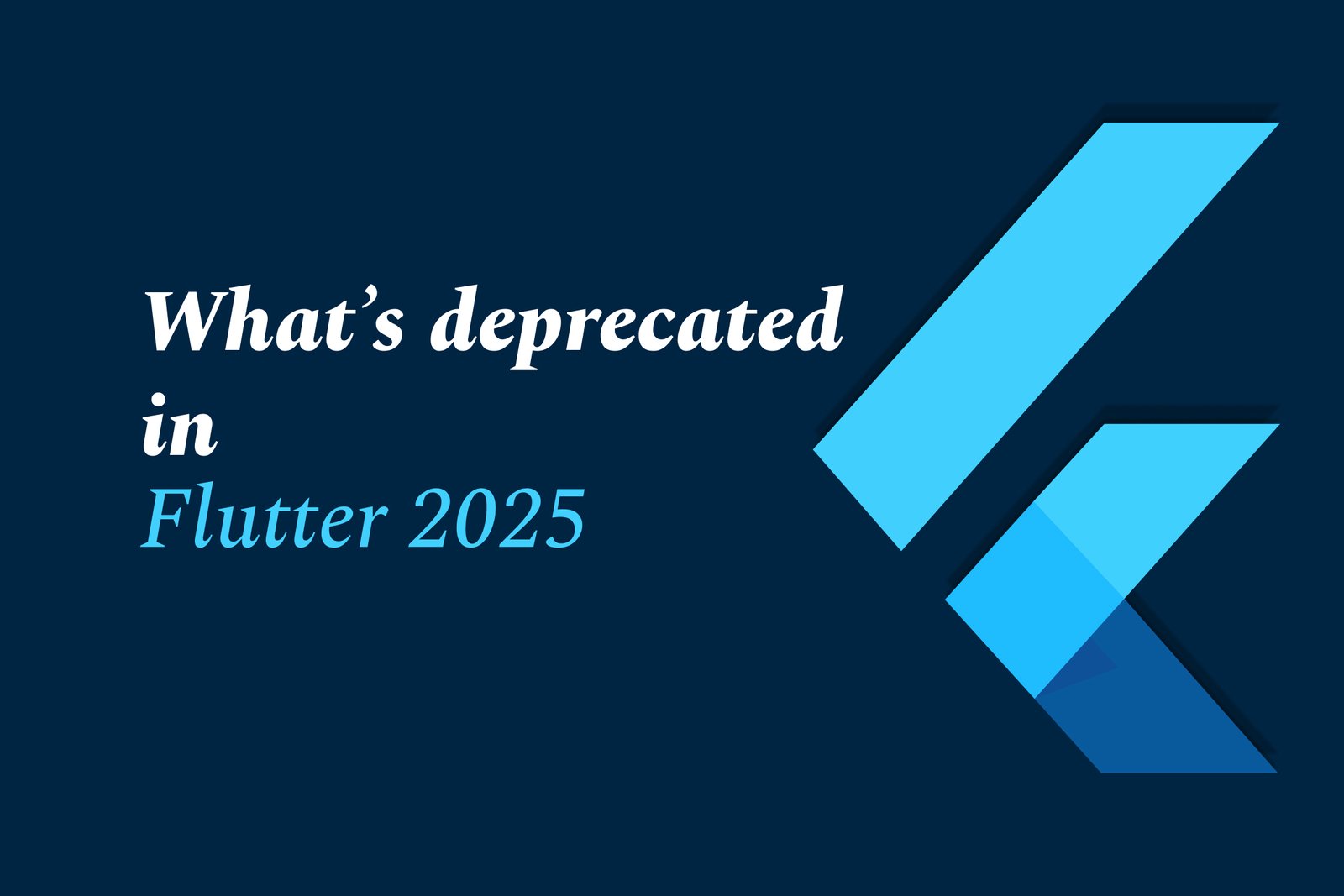What’S Deprecated In Flutter 2025
In 2025, Flutter is deprecating its HTML renderer for web apps, urging developers to switch to WebGL-based renderers like CanvasKit. Despite rumors, Flutter itself remains supported, but updating deprecated APIs and tools is essential for future-proofing projects.
What’s deprecated in Flutter 2025
1 ) Deprecation of HTML Renderer in Flutter Web
Flutter plans to fully deprecate the HTML renderer used in Flutter Web applications.
Developers are encouraged to migrate to WebGL based renderers such as CanvasKit or Skwasm for better performance and support.
The timeline for official end of support is implied but not precisely stated; migration should be prioritized.
2 ) Concerns About Flutter’s Future and Deprecation Myths
Rumors about Flutter's potential deprecation have spread, largely due to Google’s layoffs, though these layoffs mostly affected Python engineers, not Flutter developers.
Flutter remains actively supported; fears of deprecation stem from Google's history of discontinuing projects but are currently unfounded.
The skills learned in Flutter remain valuable and transferable to other frameworks such as React Native, SwiftUI, and Jetpack Compose.
3 ) Advice for Flutter Developers Amid Deprecation Fears
Developers are advised not to tie their identities to specific frameworks but to focus on solving problems and building adaptable skills.
Diversifying tooling and knowledge bases is recommended to reduce risk due to potential future deprecations of any single technology.
Learning Flutter concepts enables easier adaptation to similar frameworks in mobile and web development.
4 ) Miscellaneous Deprecated Features and Warnings
Users of Gradle encountered warnings about deprecated features incompatible with the forthcoming Gradle 9.0, highlighting the importance of updating builds and dependencies proactively.
For Java projects, compiler option Xlint:deprecation can be used to detect deprecated API uses and prepare for future removals.
Kotlin users are advised to refer to Kotlin specific compiler options to manage deprecation warnings.
Summary
Flutter in 2025 is moving away from older components like the HTML renderer for web applications, signaling a push toward more modern rendering technologies. Despite rumors, Flutter remains supported with no imminent plans for total deprecation. Developers should focus on adaptable, problem solving skills and maintain awareness of deprecated APIs and tools to future proof their projects.
https://justacademy.in/news-detail/new-features-in-flutter-4.0-stable
Related Posts
In 2025, top Angular libraries offer modern, feature-rich components and tools for building dynamic web apps. From powerful data grids to low-code platforms like UI Bakery, these libraries enhance development speed, UI design, and scalability, making them essential for Angular developers.
Migrating from AngularJS to Angular 17 involves gradually upgrading your app by running both frameworks together using tools like ngUpgrade, rewriting components in TypeScript, and adopting Angular’s modern architecture to enhance performance, maintainability, and long-term support.
Angular state management tools help organize and handle app data efficiently, improving scalability and maintainability. Popular options include NgRx for robust, RxJS-based patterns, and newer Signal Store solutions that offer simpler, reactive approaches integrated tightly with Angular’s latest features.
RxJS in Angular empowers developers to manage asynchronous data streams with powerful operators like `forkJoin`, `combineLatest`, and `zip`. Mastering these key operators in 2025 is essential for building efficient, reactive applications that handle complex event sequences seamlessly.
Angular performance optimization in 2025 focuses on improving app speed and responsiveness by using techniques like OnPush change detection, lazy loading, efficient data caching, and AOT compilation. These practices reduce load times, enhance user experience, and ensure scalable, fast Angular applications.
In 2025, Angular remains preferred for large-scale, enterprise apps with its robust, all-in-one framework, while Vue attracts developers seeking simplicity and fast development for smaller projects. Both frameworks excel, with choice driven by project needs and team expertise.
Angular Signals are a new reactive primitive in Angular 16 that enable fine-grained, efficient change detection by automatically tracking dependencies and updating only affected parts of the UI. They simplify state management and boost app performance, revolutionizing Angular's reactivity model.
Angular interview questions to prepare in 2025 focus on core concepts like components, directives, data binding, routing, and dependency injection, along with TypeScript mastery and latest Angular features to ensure strong practical knowledge for building scalable, efficient web applications.
AngularJS reached its official end of support in January 2022, meaning no further updates or security patches. To ensure app security and performance, developers should consider migrating to modern Angular versions or seek third-party long-term support options if immediate migration isn’t possible.
The Angular Roadmap 2025 highlights upcoming features focused on improving developer experience and performance, including zoneless Angular, Signals integration, enhanced Forms, async data handling, improved HMR, and expanded Angular Material/CDK enhancements, driving modern, efficient web app development.










